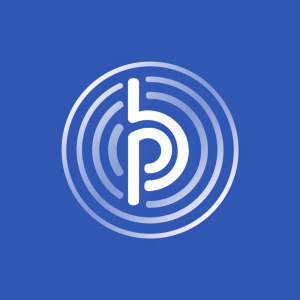Pitney Bowes Announces Value-Maximizing Exit Path for Global Ecommerce Segment
Company Sells Controlling Interest in Global Ecommerce Entities to Hilco Commercial Industrial, Which Intends to Lead Orderly and Expeditious Wind-Down of Global Ecommerce Business
Transaction Paves Way for Company to Eliminate
Pitney Bowes’ Board of Directors (the “Board”) conducted a comprehensive strategic review, with the assistance of independent legal and financial advisors, prior to ultimately determining that this exit path for GEC is in the best interests of both the Company’s shareholders and other stakeholders. Notably, the GEC segment had been struggling to achieve profitability over the past several years in the face of macroeconomic and industry headwinds. The Company expects this exit path to eliminate substantially all of the losses associated with GEC, which were equal to approximately
Lance Rosenzweig, Interim Chief Executive Officer and a member of the Board, commented:
“When the Company announced our four strategic priorities in late May, we committed to working with speed and urgency to complete a comprehensive review of alternatives for GEC. We are pleased to have delivered on that commitment by concluding a productive review and identifying an exit path for GEC that provides for an orderly and efficient wind-down of the business, which will ultimately maximize value for Pitney Bowes shareholders. This path also gives us a clear runway to streamline the Company and increase profitability across our core, cash-generating businesses: SendTech, Presort and Financial Services. In conjunction with our cost reduction efforts and progress on cash optimization, exiting GEC will also allow Pitney Bowes to make substantial progress in deleveraging our balance sheet. With these steps, we will be well-positioned to deliver stronger results in 2025 and pursue enhanced value for shareholders in the years to come.”
The Company’s SendTech and Presort segments will continue to operate in the normal course, and customers, partners and vendors should not expect any impact. Additionally, the Pitney Bowes Bank will not be affected by the GEC exit and will also continue to conduct business in ordinary course.
Overview of GEC Exit Path
Key details associated with the liquidation and wind-down, which were approved by Pitney Bowes’ Board and GEC’s independent governing body, as applicable, are as follows:
- Pitney Bowes has entered into amendments to the Company’s credit agreement and note purchase agreement to allow for the GEC exit without triggering any events of default for Pitney Bowes, and also release the guarantees and liens provided by the GEC Entities.
-
Under Hilco’s ownership, two of the GEC Entities today commenced voluntary cases under Chapter 11 of the
U.S. Bankruptcy Code. -
Pitney Bowes and GEC have signed a restructuring support agreement (“RSA”) to facilitate GEC’s smooth transition into Chapter 11. In accordance with the RSA, a subsidiary of Pitney Bowes has committed to provide the GEC Entities, subject to court approval, an approximately
$45 million -
Pitney Bowes anticipates that it will incur one-time cash costs not to exceed approximately
$150 million - The parties expect that the wind-down process, which will require certain approvals from the bankruptcy court, will conclude in early 2025.
Additional information is available at www.DRF-Updates.com and https://cases.stretto.com/DRFLogistics.
Advisors
BRG is acting as restructuring advisor, Vinson & Elkins LLP is acting as legal advisor and Longacre Square Partners LLC is acting as strategic and communications advisor to Pitney Bowes. Weil, Gotshal & Manges LLP is acting as legal advisor, Portage Point Partners is acting as financial advisor and Hilco Commercial Industrial and its affiliates are acting as wind-down consultants to the GEC subsidiaries.
About Pitney Bowes
Pitney Bowes (NYSE: PBI) is a global shipping and mailing company that provides technology, logistics and financial services to more than 90 percent of the Fortune 500. Small business, retail, enterprise and government clients around the world rely on Pitney Bowes to remove the complexity of sending mail and parcels. For additional information, visit: www.pitneybowes.com
Forward-Looking Statements
This document contains “forward-looking statements” about the Company’s expected or potential future business and financial performance. Forward-looking statements include, but are not limited to, statements about future revenue and earnings guidance, future events or conditions, and expected cost savings, elimination of future losses, and anticipated deleveraging in connection with Pitney Bowes’ announced strategic initiatives. Forward-looking statements are not guarantees of future performance and involve risks and uncertainties that could cause actual results to differ materially from those projected. Factors which could cause future financial performance to differ materially from expectations include, without limitation, declining physical mail volumes; changes in postal regulations or the operations and financial health of posts in the
View source version on businesswire.com: https://www.businesswire.com/news/home/20240808352228/en/
Chapter 11 Claims Agent:
Stretto
DRFInquiries@stretto.com
Toll-Free Case Hotline Number: (855) 314-0664
International Case Hotline Number: (714) 716-1968
https://cases.stretto.com/DRFLogistics
Media:
Longacre Square Partners
Joe Germani / Jessica McDougall, 646-386-0091
jgermani@longacresquare.com / jmcdougall@longacresquare.com
Investor Relations:
Alex Brown
investorrelations@pb.com
Source: Pitney Bowes Inc.








